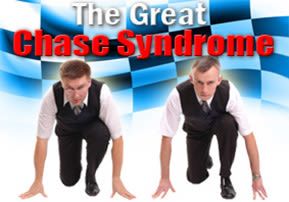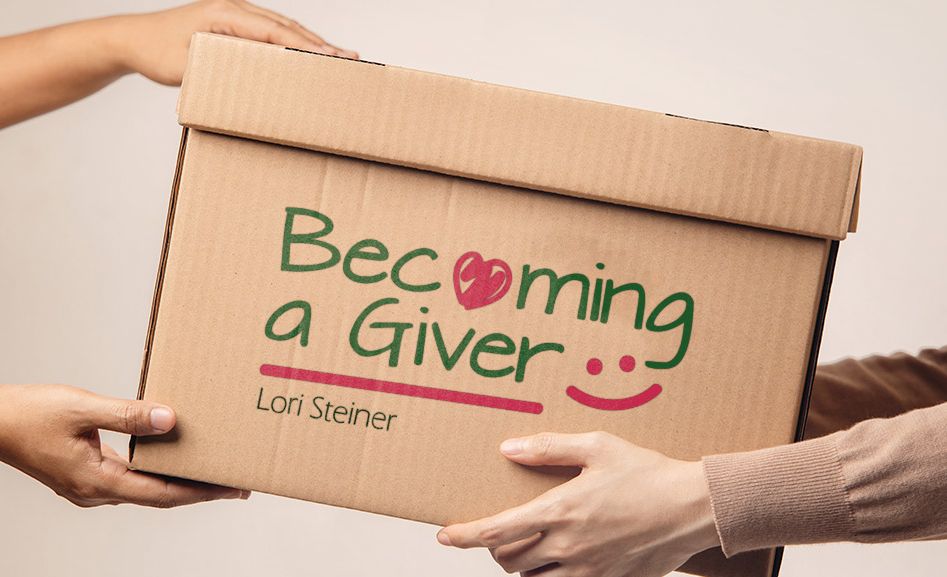
The Great Chase Syndrome
The minute we say "If only", we acknowledge that our lives are missing something. The “If only” wish....

Rebbe Nachman said to Rebbe Natan (see Likutei Halachot Even HaEzer, Hilchot Pria Urevia, 3:34), “Don’t let this world fool you, for this world is very misleading!”
Rebbe Nachman doesn’t want us to fall prey to this world’s illusions of happiness. Unfortunately, many of us do.
Let’s examine some typical statements that we hear from our fellow happiness contemplatives:
- “If only I didn’t have the mortgage payments to contend with…”
- “If only I’d get that promotion…”
- “If only Johnny would propose to me…”
- “If only I could afford that new car…”
- “If only I had that Bermuda vacation…”
- “If only I’d gain acceptance to Yale…”
- “If only I’d get a passing grade on my exams…”
- “If only the Mets win the World Series…”
The above are a number of typical fantasies that fall into the category of “If Only” (IO) wishes, a part of what I call “The Great Chase Syndrome” (GCS). IO’s are notorious in their ability to sidetrack a person from the trail to tranquility. True, people with “If only” wishes have the hopes and aspirations to keep on living, but they often devote their entire lives chasing in circles after illusions of happiness. Let’s take a closer look at the GCS, and examine whether IO’s take us closer to our goal, or in effect dangerously sidetrack us from spiritual true north and our trail to tranquility.
Here’s how the GCS works: The minute we say “If only”, we are expressing awareness that our lives are missing something. The IO is none other than a mental anesthetic that attempts to relieve the feeling of discomfort – a type of endless gnawing gap (EGG) – that we feel deep inside from a lack of happiness and happiness. The IO is a motivator as we mentioned earlier, but a counterfeit one that falls short of bringing real happiness.
How recently have we told ourselves, “If only I could obtain (insert your latest wish), I’d be so happy!” Our goal-oriented, pleasure-seeking society has conditioned us to maintain endless wish lists of IO’s. As such, most of us spend our lives in a never-ending chase after something – success, fame, pleasure, wealth, or thrills. Yet, once we achieve our goal, within a few short hours or days – as the glitter of newness fades from our acquisition or accomplishment – we already have a new IO.
The price of a never-ending chase wreaks havoc on our body’s cardiovascular and central nervous systems. The inability to satiate the inexplicable gap causes anxiety, frustration, and overall discontent. Psychologists term this a neurotic “high state of arousal” that robs one’s ability to emotionally downshift to a healthy state of relaxation. Physicians have linked heart attacks, strokes, ulcers, high blood pressure, and even diabetes to the great incessant chase after our illusions of happiness.
Unfortunately, an endless gnawing gap (EGG) – deep down from within us – always precedes a new IO. As we skip from IO to IO, we notice that the gnawing subsides for a short duration, but soon returns to its former level. Why? An old IO – once fulfilled – soon loses the glitter of newness and becomes a “So what?“, or SW. SW’s cause the EGG, a psychosomatic manifestation of the bitter realization that our real needs have not been met, despite the rigorous efforts we invested in chasing our latest IO.
Rather than making progress, our lives just continue in circles. Despite our apparent advances up the ladder of success, we don’t seem to be happier. So many of romanticize the past and yearn for “the good old days”; that’s simply digression, a phenomenon worse than going around in circles! Look how many people are downshifting, searching for the simple life and discarding former IO’s – careers and positions that they’ve worked so hard for. Think how the very IO’s that we often dream of turn into SW disappointments, even nightmares:
- “So what if I’m president of the company; I don’t have time for tennis anymore!”
- “So what if I have if my career is thriving; I don’t have a minute to myself anymore!”
- “So what if I have the new car: I used to be in much better physical condition when I was walking more.”
- “So what if we bought the dream house with the swimming pool in the back yard; our old neighbors were much friendlier.”
Do all of our IO’s end up as SW’s? Sorry, but the answer is yes. Evaluate your own experience and you’ll be amazed to see the patterns of IO’s and SW’s within the realm of your own life.
Are you sick of your soul saying “So What” to all your hard work in chasing those “If Onlys?” There is one thing that you can give your soul that won’t arouse a “so what” reaction: a true and meaningful personal relationship with Hashem. Here at Breslov World, we’re all trying our best to do just that. Join us!
There’s no time to begin talking to Hashem in your own words like the present. The weeks of the “Shovevim” are a wonderful time to strengthen personal holiness too, and by enhancing our personal holiness, we come closer to Hashem. Blessings always, Lazer Brody.












Tell us what you think!
Thank you for your comment!
It will be published after approval by the Editor.